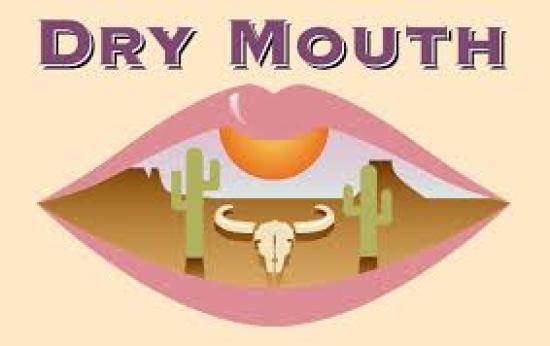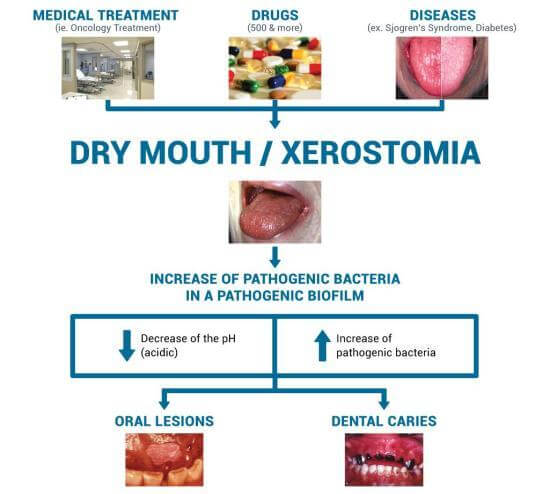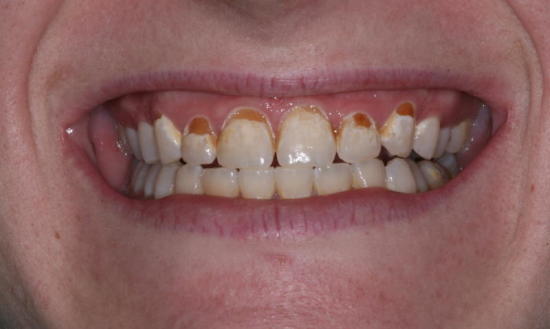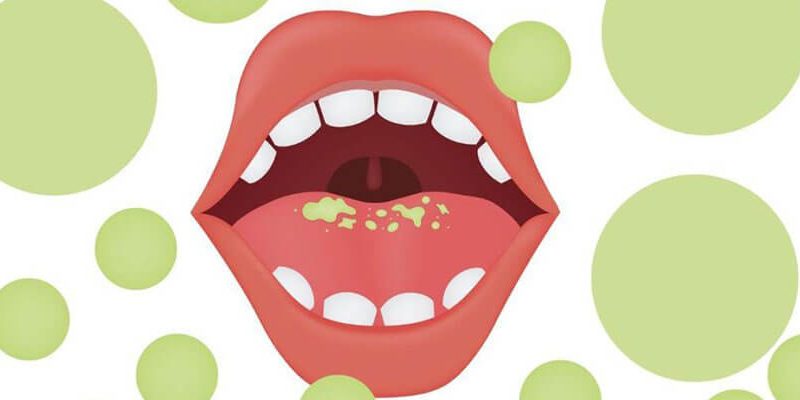Dry mouth is the condition of not having enough saliva, or spit, to keep your mouth wet. Medically it is called Xerostomia.
Everyone has a dry mouth once in a while — if they are nervous, upset or under stress. But if you have a dry mouth all or most of the time, it can be uncomfortable and can lead to serious health problems.

Effects on Oral health:
- Cause difficulties in tasting, chewing, swallowing, and speaking·
- Increase your chance of developing dental decay and other infections in the mouth·
- Can be a sign of certain diseases and conditions·
Causes of dry mouth:

- Drugs, Medication and certain medical treatments like chemotherapy, radiotherapy.
- Medical conditions like Diabetes, Sjogren’s syndrome, cerebral palsy.
- Dehydration
- Salivary duct obstruction
- Hormonal changes due to pregnancy or menopause
- Mouth breathing
- Smoking Alcohol and caffeine intake.
Symptoms Include:

- A sticky, dry feeling in the mouth
- Trouble chewing, swallowing, tasting or speaking
- A burning feeling in the mouth
- A dry feeling in the throat
- Cracked lips
- A dry, rough tongue
- Mouth sores
- An infection in the mouth.
Remedies:

- If your dry mouth is caused by medicine, your physician might change your medicine or adjust the dosage
- If your salivary glands are not working right but can still produce some saliva, your physician or dentist might give you a medicine that helps the glands work better
- Your physician or dentist might suggest that you use artificial saliva to keep your mouth wet.
- Sip water or sugarless drinks often
- Avoid drinks with caffeine, such as coffee, tea, and some sodas
- Sip water or a sugarless drink during meals. This will make chewing and swallowing easier. It may also improve the taste of food
- Chew sugarless gum or suck on sugarless hard candy to stimulate saliva flow; citrus, cinnamon or mint-flavoured candies are good choices
- Don’t use tobacco or alcohol. They dry out the mouth
- Be aware that spicy or salty foods may cause pain in a dry mouth
- Use a humidifier at night
Conclusion:
Saliva upholds the well being of your teeth gums and mouth. So dry mouth shouldn’t be taken lightly it is a risk factor for poor dental and oral health. Dry mouth is not a normal part of ageing. So if you think you have dry mouth, see your dentist or physician.




